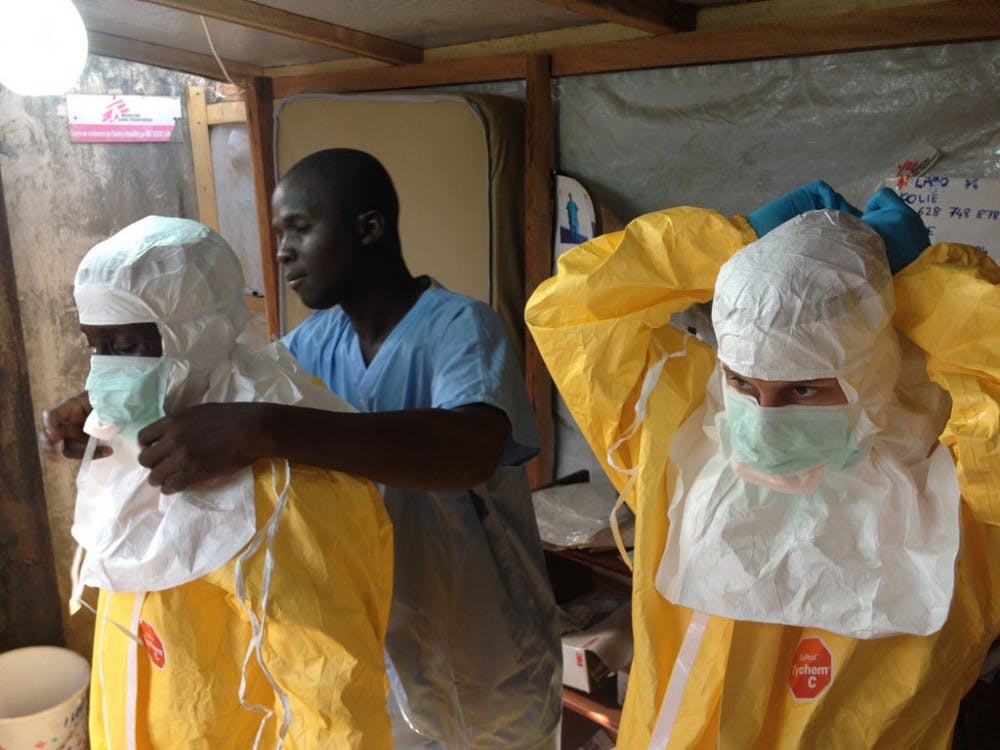The Ebola outbreak that began in August of 2018 in the Democratic Republic of the Congo (DRC) is projected to last for another year, reported Director of the Centers for Disease Control and Prevention (CDC) Robert Redfield. Redfield’s prediction, stated in an interview with the New York Times on March 15, came after his visit to the affected region.
Director-General of the World Health Organization (WHO) Tedros Adhanom Ghebreyesus previously said during a news conference on March 14 that the outbreak could end by this September.
However, in making his estimation, Redfield noted some concerning observations about the current progression of the outbreak. To date the epidemic has claimed over 620 lives.
One major issue is the percentage of individuals who are not going to treatment centers, dying instead at home or in local clinics. Ebola is not contagious until symptoms appear; however, once they do, the virus can spread through bodily fluids and sometimes through contact with objects contaminated by these fluids. The chance that individuals treated at home may transmit the disease to relatives or individuals at local clinics is high.
These concerns are certainly legitimate, with about 25 percent of Ebola patients infected at local clinics. Furthermore, health workers believe that some of the children affected in the present outbreak contracted Ebola at these clinics, where they were originally taken for other diseases.
Additionally, the corpses of individuals who died from Ebola remain infectious, and the disease can spread when family members prepare bodies for burial.
Redfield reported that only around 58 percent of Ebola patients in the most severely affected areas of the DRC are being treated in appropriate isolation units. The minimum percentage typically considered necessary to contain an outbreak is 70 percent.
Furthermore, there have been problems with tracking cases. Some newly infected individuals were not known to health workers as affiliates of existing patients, meaning that it is not certain where or from whom they contracted the disease.
Contacts of infected individuals, who were supposed to be checked regularly for symptoms, were sometimes just removed from lists of monitored individuals if they did not show up to their appointments. Incentives for showing up, such as food, have not always been distributed effectively.
Disease control efforts are being threatened by general unrest in the region of the outbreak, part of which is currently in the middle of a military conflict. Two facilities operated by Médecins Sans Frontières (MSF), also known as Doctors Without Borders, were attacked in recent weeks.
The general relationship between health workers and the local community is poor. Joanne Liu, president of MSF, warned of this in a press conference in early March. “Ebola responders are increasingly being seen as the enemy,” Liu said.
Liu acknowledged that the tension and mistrust stems in part from heavy-handed action by some health responders, such as when security forces accompanied vaccination teams. She and representatives from other aid organizations recommended an approach that includes more involvement of community members.
There remains reason for optimism. Over 90,000 people have been vaccinated, using a pre-licensing Ebola vaccine manufactured and donated by Merck, a pharmaceutical company. Active transmission is no longer occurring in two-thirds of the 130 affected health regions, as of March 21. And while there is concern that the area of the epidemic is close to Rwanda, South Sudan and Uganda, a border region where people frequently cross from one country to another, the outbreak has not spread to these neighboring nations.
Ghebreyesus has called for the international community to continue and expand its support.
“We need redoubled support from the international community, and a commitment to push together to bring this outbreak to an end,” he said in a press release.





